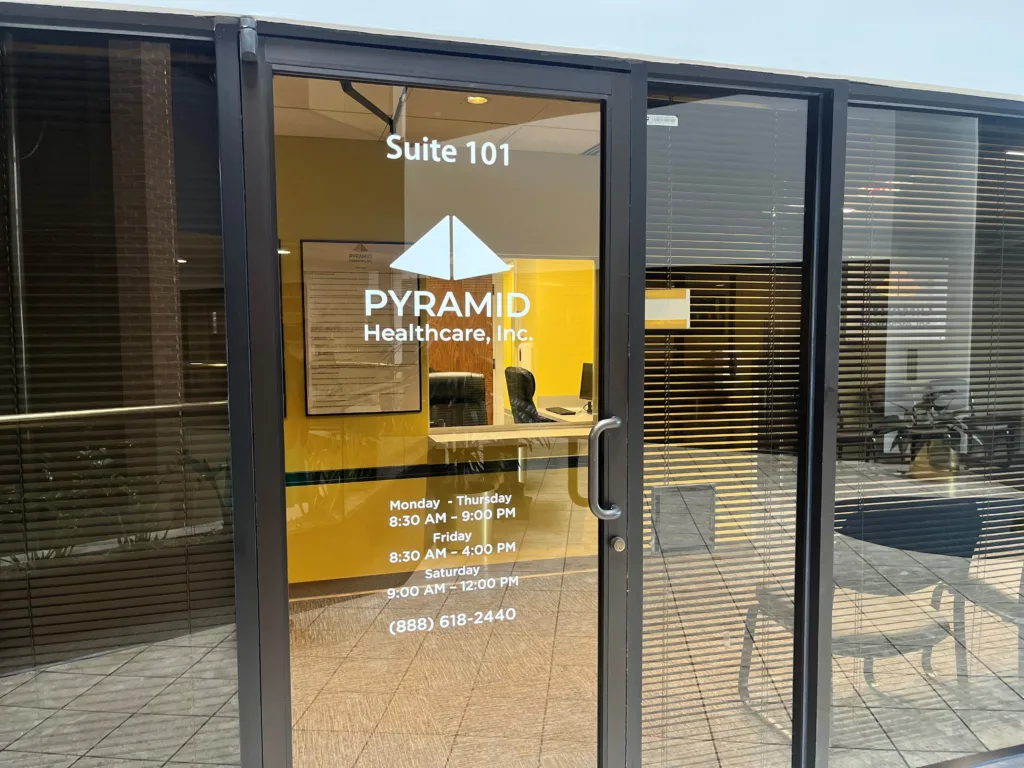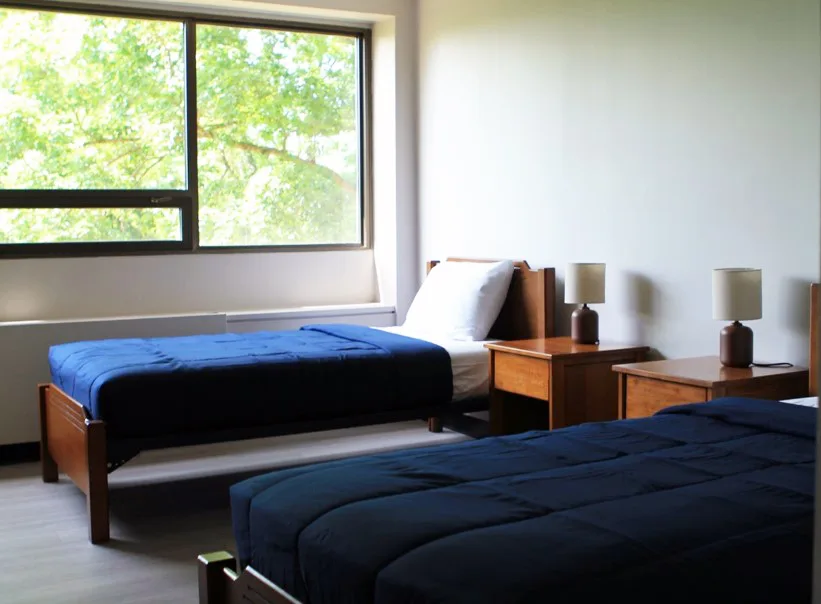What You Can Expect in Residential Rehab

Embarking on the road to recovery is not for the faint of heart, but it does abundantly reward those who commit to the journey and persevere through all of its challenges.
When you first realize you need help and you’re ready to accept that help, many people find themselves overwhelmed by all of the different decisions they have to make surrounding their treatment. Some people find themselves so catatonic by all of the different choices that they never take the first step at all (if this is you, reach out to us and we’ll help you figure it out).
Since you’re reading this article, chances are you’ve already done a bit of research and are thinking a residential program might be the best option for you. Let’s find out.
Today we’re going to define what residential rehab is and what treatment commonly looks like within these programs. We’ll also give you some insight into how to discern if this is the next best step for your recovery.
What is residential rehab?
Residential rehab, also commonly referred to as inpatient rehab, refers to a drug or alcohol addiction treatment program where the individual lives at the rehab facility. They receive 24-hour medical supervision, care and support, and can stay anywhere as short as a couple of months to as long as upwards of a year.
Each rehabilitation center is going to be distinctive in and of itself; location, some facilities are nestled in the more remote countryside, while others are situated on the outskirts of a town, and others still are planted in the center of a city. The types of treatment offered can vary per facility, as can the different services and the level of program flexibility or personalization.
Some of the most common elements of residential rehab include:
- Adhering to a structured schedule
- Engaging in group or individual therapy (sometimes support groups as well)
- Participating in alternative treatment modalities (nature therapy, nutrition education, dietary changes)
- Mental and physical healthcare training
- Re-socialization through skill development
Drug and alcohol addiction treatment are very similar due to their common denominator of being rooted in substance use disorders, but there are some important differences.
Residential drug rehab vs residential alcohol rehab
The top three differences between residential drug rehab and residential alcohol rehab are the substance-specific treatment offered, the detoxification process and medication options.
1. Substance-specific treatment
The Substance a person is using plays a major factor in which treatment option will be appropriate. The most common substances that require detoxification are:
- Alcohol
- Opiates
- Benzodiazepines
While substances that do not necessarily require detoxification may make a person a better fit for Residential Rehab:
- Cocaine/Crack Cocaine
- Methamphetamine
- Marijuana and other psychedelic substances
While these substances listed above might not need all the same treatment modalities in order to help someone struggling to recover from a substance use disorder, it is important to receive professional help and treatment when looking to begin the recovery journey from each.
2. The detoxification process vs. medication management
In the detox rehab setting you will be assessed based on the severity of your symptoms and prescribed a specific medication regime based on those symptoms. As your symptoms improve that medication will be tapered off to transition you to the next step in your care.
In a residential setting your medical and psychiatric needs will be assessed by a physician. The physician will evaluate your needs and place you on medications that will assist in your physical and mental stabilization long term.
3. The medication options
Medication-assisted treatment (MAT) is commonly integrated into residential rehab as well as Detox Rehab, but the specific medications used can differ. This is not only because of the varying effects different substances have on our minds and bodies but also because of the different interactions our bodies can have with those medications for persons with substance use disorders
Is residential rehab right for you?
Now that we’ve taken a closer look at what residential rehabilitation is, the next question to answer is whether or not residential rehab is right for you.
A unique benefit of residential rehab is it can be used as the first step in treatment and recovery, or it can occur a few steps later, such as following drug or alcohol detoxification.
Residential rehab is best for individuals who:
- Have been previously unable to maintain long-term sobriety
- Have struggled to successfully complete a rehabilitation program
- Are lacking an external (as in, personal) support system
- Are also struggling with additional conditions (co-occurring disorders)
Additional personal factors can also influence whether or not residential rehab is the next best step for you. Our assessment professionals here at Pyramid work closely with you to help you figure out what kind of treatment option is best for you.
As for where you’ll actually receive this treatment, there are high-quality residential rehab centers scattered across the country, with Pyramid Healthcare offering programs in multiple locations, including Pennsylvania, Maryland and New Jersey.
Helping you achieve long-lasting sobriety and fulfillment in your life is not only our purpose as an organization, it’s our passion as a community. When you’re ready to start, we’re ready to help.
Start your recovery today
Pyramid Healthcare is a premier behavioral healthcare provider specializing in helping adolescents, teens and adults recover from substance abuse or addiction as simply and efficiently as possible.
From detoxification to helping you get back on your feet post-rehabilitation, we’ll be here to support you every step of the way so you can reclaim your health and your life.
Give our team a call to speak with one of our qualified advisors and learn more about how we can best support you during your recovery journey.
Embarking on the road to recovery is not for the faint of heart, but it does abundantly reward those who commit to the journey and persevere through all of its challenges.
When you first realize you need help and you’re ready to accept that help, many people find themselves overwhelmed by all of the different decisions they have to make surrounding their treatment. Some people find themselves so catatonic by all of the different choices that they never take the first step at all (if this is you, reach out to us and we’ll help you figure it out).
Since you’re reading this article, chances are you’ve already done a bit of research and are thinking a residential program might be the best option for you. Let’s find out.
Today we’re going to define what residential rehab is and what treatment commonly looks like within these programs. We’ll also give you some insight into how to discern if this is the next best step for your recovery.
What is residential rehab?
Residential rehab, also commonly referred to as inpatient rehab, refers to a drug or alcohol addiction treatment program where the individual lives at the rehab facility. They receive 24-hour medical supervision, care and support, and can stay anywhere as short as a couple of months to as long as upwards of a year.
Each rehabilitation center is going to be distinctive in and of itself; location, some facilities are nestled in the more remote countryside, while others are situated on the outskirts of a town, and others still are planted in the center of a city. The types of treatment offered can vary per facility, as can the different services and the level of program flexibility or personalization.
Some of the most common elements of residential rehab include:
- Adhering to a structured schedule
- Engaging in group or individual therapy (sometimes support groups as well)
- Participating in alternative treatment modalities (nature therapy, nutrition education, dietary changes)
- Mental and physical healthcare training
- Re-socialization through skill development
Drug and alcohol addiction treatment are very similar due to their common denominator of being rooted in substance use disorders, but there are some important differences.
Residential drug rehab vs residential alcohol rehab
The top three differences between residential drug rehab and residential alcohol rehab are the substance-specific treatment offered, the detoxification process and medication options.
1. Substance-specific treatment
The Substance a person is using plays a major factor in which treatment option will be appropriate. The most common substances that require detoxification are:
- Alcohol
- Opiates
- Benzodiazepines
While substances that do not necessarily require detoxification may make a person a better fit for Residential Rehab:
- Cocaine/Crack Cocaine
- Methamphetamine
- Marijuana and other psychedelic substances
While these substances listed above might not need all the same treatment modalities in order to help someone struggling to recover from a substance use disorder, it is important to receive professional help and treatment when looking to begin the recovery journey from each.
2. The detoxification process vs. medication management
In the detox rehab setting you will be assessed based on the severity of your symptoms and prescribed a specific medication regime based on those symptoms. As your symptoms improve that medication will be tapered off to transition you to the next step in your care.
In a residential setting your medical and psychiatric needs will be assessed by a physician. The physician will evaluate your needs and place you on medications that will assist in your physical and mental stabilization long term.
3. The medication options
Medication-assisted treatment (MAT) is commonly integrated into residential rehab as well as Detox Rehab, but the specific medications used can differ. This is not only because of the varying effects different substances have on our minds and bodies but also because of the different interactions our bodies can have with those medications for persons with substance use disorders
Is residential rehab right for you?
Now that we’ve taken a closer look at what residential rehabilitation is, the next question to answer is whether or not residential rehab is right for you.
A unique benefit of residential rehab is it can be used as the first step in treatment and recovery, or it can occur a few steps later, such as following drug or alcohol detoxification.
Residential rehab is best for individuals who:
- Have been previously unable to maintain long-term sobriety
- Have struggled to successfully complete a rehabilitation program
- Are lacking an external (as in, personal) support system
- Are also struggling with additional conditions (co-occurring disorders)
Additional personal factors can also influence whether or not residential rehab is the next best step for you. Our assessment professionals here at Pyramid work closely with you to help you figure out what kind of treatment option is best for you.
As for where you’ll actually receive this treatment, there are high-quality residential rehab centers scattered across the country, with Pyramid Healthcare offering programs in multiple locations, including Pennsylvania, Maryland and New Jersey.
Helping you achieve long-lasting sobriety and fulfillment in your life is not only our purpose as an organization, it’s our passion as a community. When you’re ready to start, we’re ready to help.
Start your recovery today
Pyramid Healthcare is a premier behavioral healthcare provider specializing in helping adolescents, teens and adults recover from substance abuse or addiction as simply and efficiently as possible.
From detoxification to helping you get back on your feet post-rehabilitation, we’ll be here to support you every step of the way so you can reclaim your health and your life.
Give our team a call to speak with one of our qualified advisors and learn more about how we can best support you during your recovery journey.







